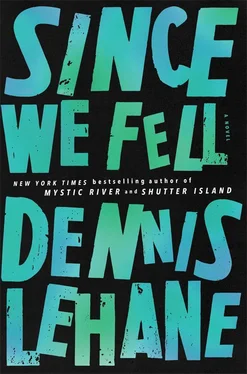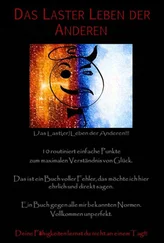Dennis Lehane - Since We Fell
Здесь есть возможность читать онлайн «Dennis Lehane - Since We Fell» весь текст электронной книги совершенно бесплатно (целиком полную версию без сокращений). В некоторых случаях можно слушать аудио, скачать через торрент в формате fb2 и присутствует краткое содержание. Город: New York, Год выпуска: 2017, ISBN: 2017, Издательство: Ecco, HarperCollins, Жанр: Триллер, roman, на английском языке. Описание произведения, (предисловие) а так же отзывы посетителей доступны на портале библиотеки ЛибКат.
- Название:Since We Fell
- Автор:
- Издательство:Ecco, HarperCollins
- Жанр:
- Год:2017
- Город:New York
- ISBN:978-0-06-212938-3
- Рейтинг книги:5 / 5. Голосов: 1
-
Избранное:Добавить в избранное
- Отзывы:
-
Ваша оценка:
- 100
- 1
- 2
- 3
- 4
- 5
Since We Fell: краткое содержание, описание и аннотация
Предлагаем к чтению аннотацию, описание, краткое содержание или предисловие (зависит от того, что написал сам автор книги «Since We Fell»). Если вы не нашли необходимую информацию о книге — напишите в комментариях, мы постараемся отыскать её.
is a novel of profound psychological insight and tension. It is Dennis Lehane at his very best.
Since We Fell — читать онлайн бесплатно полную книгу (весь текст) целиком
Ниже представлен текст книги, разбитый по страницам. Система сохранения места последней прочитанной страницы, позволяет с удобством читать онлайн бесплатно книгу «Since We Fell», без необходимости каждый раз заново искать на чём Вы остановились. Поставьте закладку, и сможете в любой момент перейти на страницу, на которой закончили чтение.
Интервал:
Закладка:
Rachel, sitting on the second-to-last step of the basement staircase, held her breath. She squeezed the edges of the journal and her vision shimmied.
I saw him today .
“He never saw me. I parked up the street. He was on the lawn of the house he found after he abandoned us. And they were with him — the replacement wife, the replacement children. He’s lost a lot of his hair and grown spongy above the belt line and below the chin. Small comfort. He’s happy. God help me. He’s happy. And isn’t that the worst of all possible outcomes? I don’t even believe in happiness — not as an ideal or as an authentic state of being; it’s a child’s goal — and yet, he is happy. He’d feel that happiness threatened by this daughter he never wanted and wanted even less once she was born. Because she reminded him of me. Of how much he grew to loathe me. And he would hurt her. I was the one person in his life who refused to adore him and he’d never forgive Rachel for that. He’d assume I told her unflattering things about him, and James, as we all know, could never abide criticism of his precious, earnest self.”
Rachel had been bedridden only once in her life — freshman year of high school. She’d contracted mononucleosis just as she was heading into Christmas break. The timing turned out to be fortuitous. It took her thirteen days to get out of bed and five more to regain the strength to return to school. In the end, she missed only three days of classes.
But that would have been the window when her mother saw James. Which was also when her mother was a visiting professor at Wesleyan. She’d rented a house in Middletown, Connecticut, that year and that was the “strange bed” Rachel had been confined to. Her mother, she recalled now with a disconcerted pride, had never left her during the illness except one time, to get groceries and wine. Rachel had just started watching Pretty Woman on VHS and was still watching it when her mother returned. Her mother checked her temperature and opined that she found Julia Roberts’s toothy grin “cosmically grating,” before she brought the grocery bags into the kitchen to unload them.
When she returned to the bedroom, glass of wine in one hand, warm, wet facecloth in the other, she gave Rachel a lonesome, hopeful look and said, “We did okay, didn’t we?”
Rachel looked up at her as she laid the facecloth across her forehead. “Of course we did,” she said because, in that moment, it felt like they had.
Her mother patted her cheek, looked at the TV. It was the end of the movie. Prince Charming, Richard Gere, showed up with flowers to rescue his Hooker Princess, Julia. He thrust the flowers forward, Julia laughed and teared up, the music boomed in the background.
Her mother said, “I mean, enough with the smiling already.”
That put the entry of the diary at December 1992. Or early January 1993. Eight years later, sitting on the basement steps, Rachel realized her father had been living somewhere within a thirty-mile radius of Middletown. Couldn’t be any more. Her mother had visited the street where he lived, observed him with his family, and then picked up groceries and stopped off at the liquor store for wine in under two hours. That meant James was teaching somewhere nearby, most likely at the University of Hartford.
“ If he was still teaching by that point,” Brian Delacroix said when she called him.
“True.”
But Brian agreed that there was enough to go on now so that he could take her case and her money and still look himself in the mirror in the morning. So in the late summer of 2001, Brian Delacroix and Berkshire Security Associates launched an investigation into the identity of her father.
And came up with nothing.
No one by the name of James taught in higher education in northern Connecticut that year who wasn’t already well accounted for. One had blond hair, one was African American, and the third was twenty-seven years old.
Once again, Rachel was told to let it go.
“I’m leaving,” Brian said.
“Chicopee?”
“The business. So, yeah, Chicopee too, but I just don’t want to be a private investigator. It’s too grim, you know? All I seem to do is disappoint people, even when I deliver what they paid me to find. I’m sorry I couldn’t help you, Rachel.”
It hollowed out something in her. Another departure. Another person in her life, however minor of impact, who would leave whether she wanted it to happen or not. She had no say.
“What’re you going to do?” she asked.
“I’m gonna go back to Canada, I think.” His voice sounded strong, as if he’d arrived someplace he’d been meaning to arrive his whole life.
“You’re Canadian?”
He chuckled softly. “Sure am.”
“What’s back there?”
“Family lumber business. How’s things with you?”
“Grad school is great. New York right now,” she said, “less so.”
It was late September 2001, less than three weeks after the towers fell.
“Of course,” he said gravely. “Of course. I hope things look up for you. I wish you good things, Rachel.”
She was surprised how intimate her name sounded when it fell from his tongue. She pictured his eyes, the tenderness there, and was mildly annoyed to realize she’d been attracted to him and had failed to acknowledge it when it could have mattered.
“Canada,” she said, “eh?”
That soft chuckle of his. “Canada.”
They said their good-byes.
In her basement apartment on Waverly Place in Greenwich Village, easy walking distance to most of her classes at NYU, she sat in the soot and ash of lower Manhattan in the month after 9/11. The day of the attack, a thick dust grew woolen on her windowsills, the dust of hair and pieces of bone and cells piling up like a light snow. The air smelled burnt. In the afternoon, she wandered, ended up walking past St. Vincent’s ER, where gurneys were lined up for patients who never arrived. In the days that followed, pictures began to appear on the walls and fences of the hospital, most often with a simple message — “Have You Seen This Person?”
No, she hadn’t. They were gone.
She was surrounded by loss so much greater than any she’d experienced in her own life. Everywhere she turned she saw grief and unanswered prayers and a bedrock chaos that took so many forms — sexual, emotional, psychological, moral — that it quickly became the thread and thrum that united them all.
We are all lost, Rachel realized, and resolved to bandage her own wound as best she could and never pick at the scab again.
That autumn, she came across two sentences in one of her mother’s journals that she repeated to herself as a mantra every night for weeks before going to bed.
James, her mother wrote, was never meant for us.
And we were never meant for him .
2
Lightning
She suffered her first panic attack in the fall of 2001, just after Thanksgiving. She was walking along Christopher Street and passed a woman her own age who sat on a black iron stoop under the arched entrance to an apartment co-op. The woman was weeping into her hands, a not uncommon occurrence back then in New York City. People wept in parks and bathrooms and on the A train, some silently, some with vigor and volume. It was everywhere. But you still had to ask, you still had to check.
“Are you okay?” Rachel reached out to touch the woman.
The woman recoiled. “What are you doing?”
“I’m seeing if you’re okay.”
“I’m fine.” The woman’s face was dry. She smoked a cigarette that Rachel hadn’t noticed before. “Are you okay?”
“Sure,” Rachel said. “I was just—”
The woman was handing her several tissues. “It’s all right. Let it out.”
Читать дальшеИнтервал:
Закладка:
Похожие книги на «Since We Fell»
Представляем Вашему вниманию похожие книги на «Since We Fell» списком для выбора. Мы отобрали схожую по названию и смыслу литературу в надежде предоставить читателям больше вариантов отыскать новые, интересные, ещё непрочитанные произведения.
Обсуждение, отзывы о книге «Since We Fell» и просто собственные мнения читателей. Оставьте ваши комментарии, напишите, что Вы думаете о произведении, его смысле или главных героях. Укажите что конкретно понравилось, а что нет, и почему Вы так считаете.

![Деннис Лихэйн - Когда под ногами бездна [Since We Fell ru]](/books/25722/dennis-lihejn-kogda-pod-nogami-bezdna-since-we-fe-thumb.webp)










